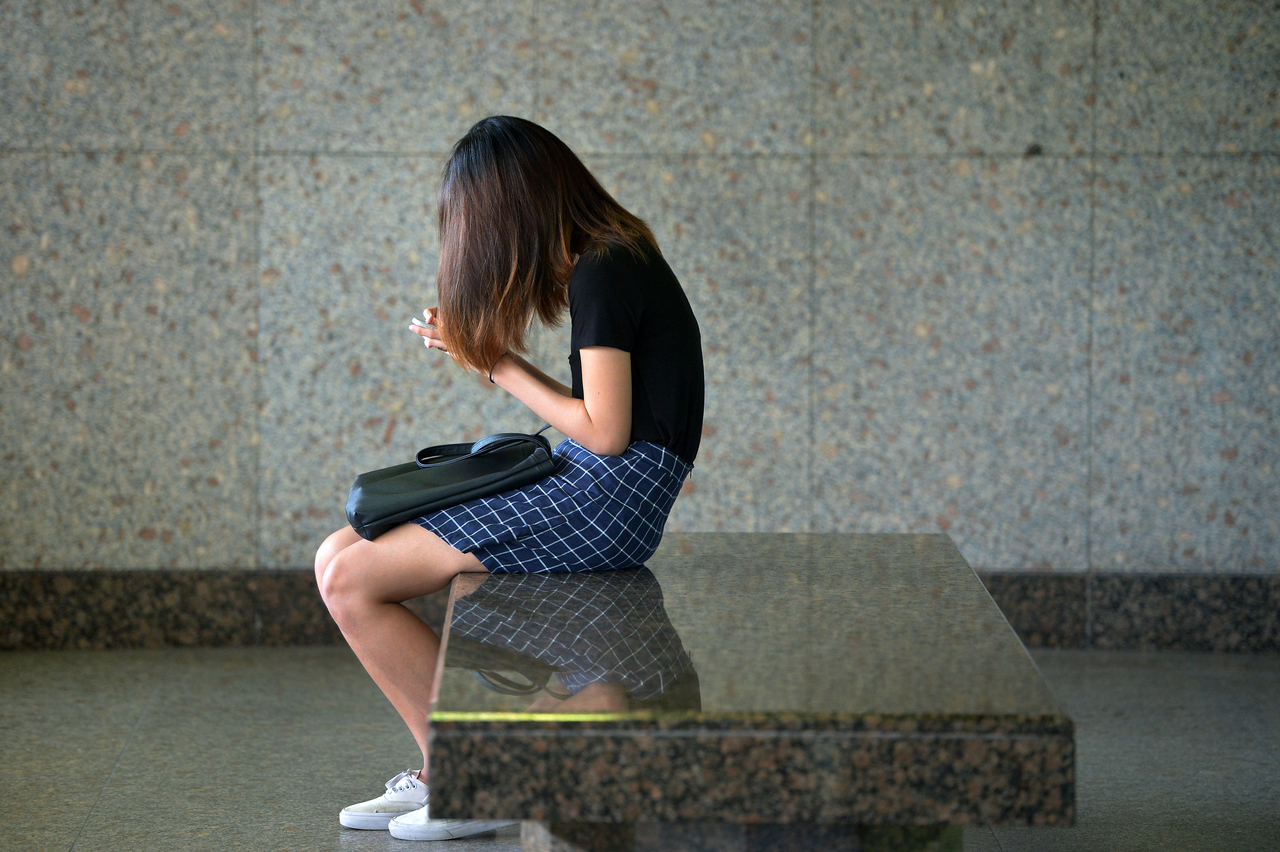Some young people in S'pore creating pseudo accounts to handle toxic comments
Sign up now: Get ST's newsletters delivered to your inbox

More commonly, young people set up a public account to showcase a more measured, positive side, and a private account known to closer friends.
ST PHOTO: KUA CHEE SIONG
SINGAPORE - Some teenagers are creating social media accounts using pseudonyms - to bash themselves or support comments posted on their "official" accounts.
Social worker Eric Sng has encountered at least four teenagers engaging in such activities.
The head of Shine Children and Youth Services' community outreach team ResiL!ence, started in October last year, has been working with young people for over 12 years.
Reasons for this behaviour are complex, he said, adding that some might be feeling down and want to double down on themselves.
Leaving negative comments might invite others to join in on the self-criticism, or could also be a form of reverse psychology to spur others to share words of encouragement.
Others who create pseudo accounts to defend themselves on their social media profiles told Mr Sng that this anonymity helps them respond to critical comments as it is "better to have others protect you than to stand up for yourself".
Dr Annabelle Chow, principal clinical psychologist at Annabelle Psychology, said that these pseudo accounts could be to generate hype among their friends by creating controversy or an indirect way of having the inner version of themselves affirmed.
Dr Emily Ortega, head of psychology at the Singapore University of Social Sciences added that false identities also help avoid responsibility for words or actions.
She said: "But I guess (singer-songwriter) Taylor Swift best explains this - 'say it in the street, that's a knockout, but you say it in a tweet, that's a cop-out'."
More commonly, young people set up a public account to showcase a more measured, positive side, and a private account known to closer friends, where they share private matters.
"While a private account can be a space for young people to feel safe, it can cut both ways as these spaces are usually not accessible to caring adults who can offer appropriate guidance and look out for warning signs of distress that sometimes peers may be unable to offer or overlook," said Mr Sng.
Associate Professor Andy Ho, who specialises in public mental health at the Nanyang Technological University, said that young people and children will inevitably be exposed to mean and ill-spirited comments as they socialise and forge relationships online.
Dr Andrew Yee of the Singapore University of Technology and Design (SUTD) said parents and educators should find ways to reach out and help young people better understand the inherent features of social media platforms and what they do to their experience of the digital world.
"On top of that, It is important to help young people identify, recognise and regulate their emotions from a young age," added the SUTD fellow, who is researching how technological environments shape health and well-being.
Getting help
National Care Hotline: 1800-202-6868 (8am - 12am)
Mental well-being
Fei Yue's Online Counselling Service: eC2.sg website (Mon to Fri, 10am to 12pm, 2pm to 5pm)
Institute of Mental Health's Mental Health Helpline: 6389-2222 (24 hours)
Samaritans of Singapore: 1800-221-4444 (24 hours) /1-767 (24 hours)
Singapore Association for Mental Health: 1800-283-7019 (Mon to Fri, 9am to 6pm)
Silver Ribbon Singapore: 6386-1928/6509-0271 (Mon to Fri, 9am to 6pm)
Tinkle Friend: 1800-274-4788 (Mon to Fri, 2.30pm to 5pm)/ Tinkle Friend website (Mon to Thu, 2.30pm to 7pm and Fri, 2.30pm to 5pm)
Institute of Mental Health's Mental Health Helpline: 6389-2222 (24 hours)
Samaritans of Singapore: 1800-221-4444 (24 hours) /1-767 (24 hours)
Singapore Association for Mental Health: 1800-283-7019 (Mon to Fri, 9am to 6pm)
Silver Ribbon Singapore: 6386-1928/6509-0271 (Mon to Fri, 9am to 6pm)
Tinkle Friend: 1800-274-4788 (Mon to Fri, 2.30pm to 5pm)/ Tinkle Friend website (Mon to Thu, 2.30pm to 7pm and Fri, 2.30pm to 5pm)
Counselling
TOUCHline (Counselling): 1800-377-2252 (Mon to Fri, 9am to 6pm)
Care Corner Counselling Centre (Mandarin): 1800-353-5800 (Daily, 10am to 10pm)
Care Corner Counselling Centre (Mandarin): 1800-353-5800 (Daily, 10am to 10pm)


